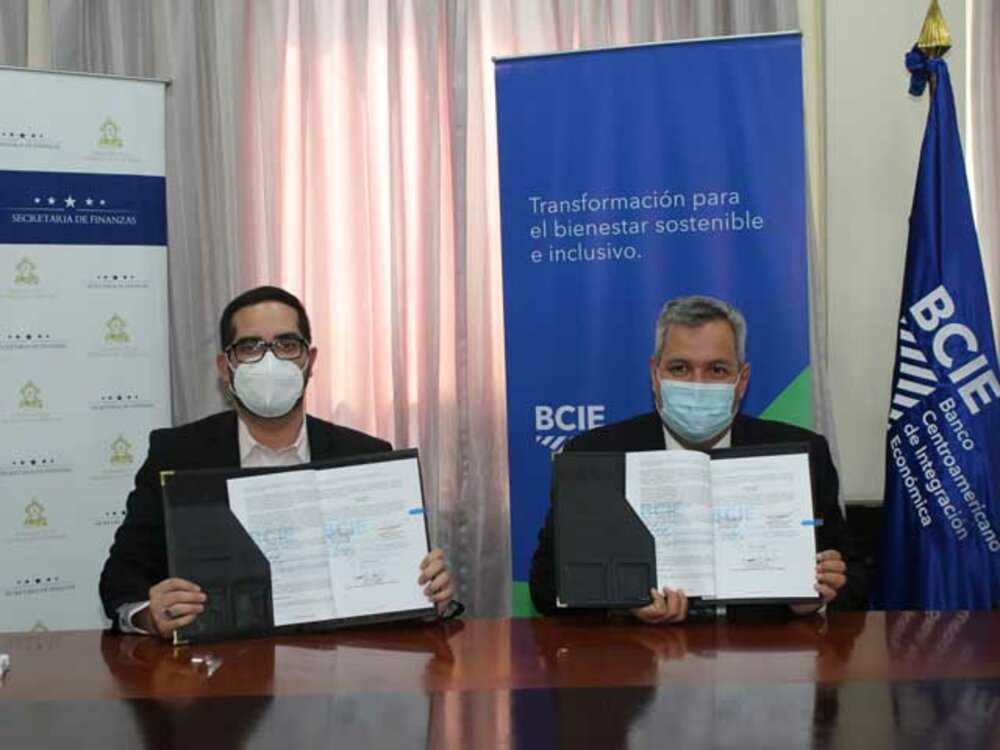CABEI grants technical cooperation for US$654 thousand for initial studies of Morolica dam in Honduras

The construction of the project will benefit 250,000 inhabitants of the area.
Tegucigalpa, April 29, 2021.- The Central American Bank for Economic Integration (CABEI), signed today a technical cooperation agreement for US$654,500 with the Republic of Honduras to finance the consultancy for the preparation of the "Technical and Economic Prefeasibility Study for Hydraulic Infrastructures in the Lower Choluteca River Basin".
As a result of this cooperation, the country will have preliminary technical, environmental, social, economic and financial studies that will allow for the feasibility studies and final design of the Morolica dam and related hydraulic infrastructure, improving water security in the lower basin of the Choluteca River, preventing floods and droughts simultaneously and benefiting 250,000 inhabitants of this municipality.
CABEI Executive President, Dr. Dante Mossi, highlighted: "This cooperation is part of the Bank's contribution to the national recovery process following the emergency caused by hurricanes Eta and Iota. This type of intervention strengthens the region's resilience to extreme natural phenomena through the implementation of works aimed at flow regulation and flood control, as well as the supply of water for human consumption and irrigation and, if possible, energy generation.
The cooperation agreement was signed by the Minister of Finance, Marco Midence, representing the Honduran Government and Dr. Dante Mossi, representing CABEI. CABEI Director for the Republic of Honduras, Catherine Chang Carías, signed as a witness of honor.
The bidding and contracting of the consulting firm that will carry out these studies will take place in the coming months with the aim of having the results in the first half of 2022.
This initiative is in line with CABEI's 2020-2024 Institutional Strategy, specifically in the Human Development and Social Inclusion Axis, which generates social capacities that lead to improving the well-being and quality of life of the Central American region; and contribute to the 2030 Agenda in line with the Sustainable Development Goal (SDG 6) that seeks to guarantee the availability of water and sanitation for the global population, under sustainable and equitable management.




